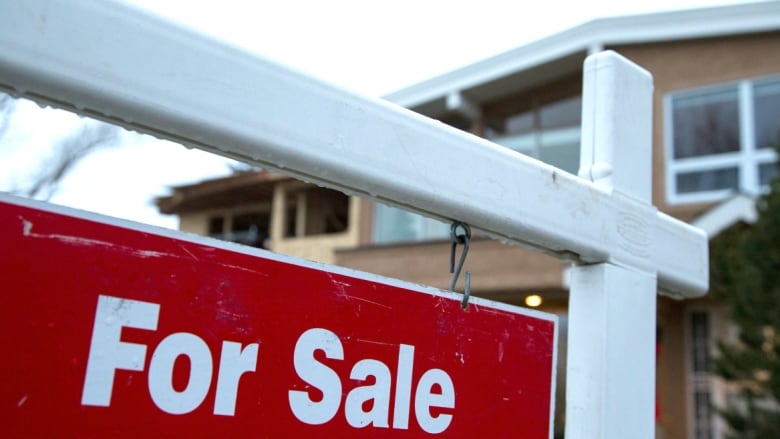Realtors should face fines up to $250K for misconduct, B.C. report recommends
Advisory group says real estate council needs greater scrutiny and powers to punish wrongdoing

An independent advisory group tasked with reviewing a series of damning revelations about unscrupulous activity in B.C.'s overheated housing market says real estate agents who break the rules should face fines of up to $250,000.
In a report prepared for B.C.'s Real Estate Council, the 11-member panel also calls for confidential lines of communication like a hotline or whistleblower programs for members of the public to report wrongdoing.
Among the 60-page report's findings are recommendations for greater scrutiny of new licensees and the end of dual agency, in which a real estate agent is allowed to act for both the seller and buyer in a deal.
The group says the 11 real estate boards that advance the interests of Realtors in B.C. should stop performing quasi-regulatory duties, which might discourage complainants from taking their concerns to the regulator.
The chair of the advisory group, Financial Institutions Commission head Carolyn Rogers, admitted the panel was not asked to deal with the overarching concern of affordability in B.C.'s housing market.
'House are no longer just homes'
"Any time there is extreme price fluctuation, you have people that try to rush into the market to make a quick buck," Rogers told reporters.
"I think what's going on in British Columbia is that houses are no longer just homes, they are trading as investments, and that puts pressure on a regime that was never designed for that."
The group "found the Real Estate Council does not consistently make use of the principles and rules that already exist, to effectively deter misconduct and unethical behaviours that impact on the reputation and confidence in the industry," the report says.
"In some instances, the Real Estate Council interprets its jurisdiction narrowly and appears reluctant to intervene, where it needs to be proactive and authoritative to head off problems earlier."
The current maximum penalty for real estate agent misconduct is $10,000, while brokerages face a maximum penalty of $20,000. The report says the ceiling for individuals should be increased to $250,000 for individuals and up to $500,000 for brokerages.
The public perception of existing penalties is that many Realtors see them as the cost of doing business. The recommendations also call for the Real Estate Council to have the power to go after theproceeds of misconduct from licensees and brokerages.
'Shadow-flipping' triggered report
The panel was formed after a series of media stories about questionable real estate practices including so-called "shadow-flipping,"in which the contract for a house sale is assigned multiple times before the final contract is settled, with profit going to other Realtors without the knowledge of the original seller.
The province has since acted to crack down on shadow-flipping to ensure that sellers are fully informed about contract assignments. The panel wants to see those rules apply to all real estate transactions, including "for-sale-by-owner"deals.
Rogers saidmembers of the advisory group heard from the public about aggressive marketing practices, which include constant solicitation for sales in hot areas. The report calls for "proactive detection and deterrence efforts" for licensees who engage in those types of activities.
A number of the 28 recommendations would also require action from government, including an amendment to legislation governing the sector to require that 50 per cent of the Real Estate Council's members come from outside the industry. At present 13 of the council's 17 members are industry members elected by their peers.
'Time has come to rebalance'
"It is our view that some industry members voted to council may not fully appreciate that their role is to serve the council's public interest mandate and not the interests of their peers or local board," the report says.
"We believe the time has come to rebalance that industry voice with other perspectives."
Rogers admitted the public perception is that the regulator is weak, but saidthe group's mandate was not to look at a move away from self-regulation. She said the possibility of independent regulation still exists, but is a choice the government would have to make.
The Real Estate Council saidit agrees with the recommendations and has struck a committee to consider implementation. The council is funded by licensees.
Rogers saidshe thinks many of the suggestions such as putting an end to dual agency could be acted on in the next six months.












_(720p).jpg)


 OFFICIAL HD MUSIC VIDEO.jpg)
.jpg)



























































































